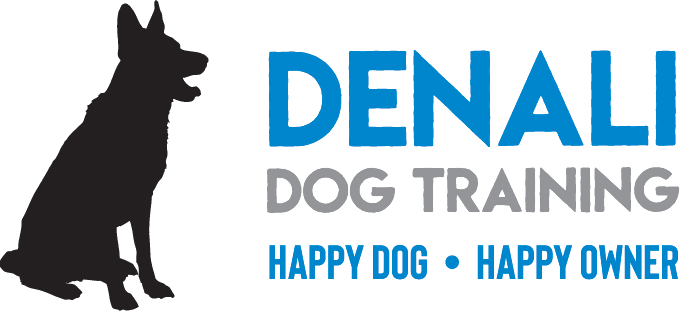What is an Animal Behaviourist ? What is the difference between a behaviourist and a dog trainer?
An Animal Behaviourist has a university degree in animal behaviour . A dog trainer may have done some formal study ( but not a university degree) or none at all as dog training is an unregulated field . Anyone may call themselves a dog trainer and some call themselves behaviourists when they are not actually entitled to , so it's important to check a trainer's qualifications before hiring them . Not all dog training qualifications are equal either . Only one course is currently recognised by the federal govt in Australia . Courses which are run through any other source eg a training franchise's own course or a military or police dog training background , may or not be correct, may or may not be based on science and current study , and may or may not be harmful to your dog if using out dated methods relying heavily, even if not exclusively , on punishment . Vets are not animal behaviourists unless they have done further study in that field, therefore will often prescribe medication to dampen/suppress (but not change ) behaviour .
A qualified behaviourist will be expensive and often will refer client to a vet for behavioural medication .In my experience medication masks (supresses) behaviour but doesnt change it .Dogs behave in accordance with what they have learned to expect . If aggression or anxiety is caused by a bad experience eg punishment or a fright or fear of an unknown eg poorly socialised , then this will not change without changing the dog 's expectation when it is in that situation . How do we do that ? Psychology .
An unqualifed dog trainer usually will resort to punishment when a dog does an unwanted behaviour because they do not know what else to do . They do not understand how learning happens so they do not understand that punishment will only reinforce the bad associations , and they mistake rewards as bribes . Scientific studies over the decades have shown that punishment creates aggression and anxiety or causes the dog to shutdown (learned helplessness), so this is not going to help the behaviour and is likely to add further problems .
A dog trainer who has been taught the principles of psychology may or may not be able to apply these principles to modifiy behaviour . A qualifed dog trainer may or may not work mostly with behavioural problems . Some of these trainers call themselves behaviourists on this basis BUT they are not actually legally entitled to do so .
I am qualified and nationally accredited and I work mostly with dogs with behaviour problems using principles of psychology and have done further study in these areas with well regarded international positive reinforcement trainers and veterinary behaviourists. Therefore I call myself a behavioural trainer -but not a behaviourist .
Does behaviour modification by way of psychological principles work ? Are medications necessary ? Speaking from my experience of 5 yrs at the time of writing , I have never found that aggression or anxiety was not able to be found to have an identifiable cause . So while I don't rule out medication absolutely I have never to the present not been able to change the behaviour without it . I am recommended by a number of vets because they have found that they dont need to prescribe medication for clients ' aggressive dogs if they have a consult with me .
I suggest that people seeking help with their dogs' behaviour look at my blog entitled Questions to ask A Trainer and ask prospective trainers these questions . Punitive trainers will not call themselves such as it tends to put many ( but not all ) people off , so it is important that owners seek very specific answers and question anything they are told .A reward based trainer will not object to explaining the pros and cons and alternatives to any method they propose . A punitive or "balanced " trainer may call themselves "force free " but then state they use "rewards AND OTHER METHODS" and "all 4 quadrants of the motivation matrix ". This is a contradication because if a trainer uses all 4 quadrants they DO use force. "Other methods " can only be punishment or force .
So what are the 4 quadrants ?Why do they matter ?
Here is where it gets technical- but come with me....
The 4 quadrants of the motivational matrix (how learning happens ) are positive reinforcement , negative reinforcement , positive punishment , and negative punishment .
Positive doesn't mean good. It means ADDED.
Negative means REMOVED.
Reinforcement reinforces, that is encourages or INCREASES a behaviour .
Punishment punishes, that is discourages or DECREASES a behaviour .
Therefore positive reinforcement means adding something to encourage behaviour to be repeated , eg a treat . Negative reinforcement means removing something which then encourages(increases ) a behaviour eg removing leash or rein pressure when a dog or horse yields to it so the animal will yield to the pressure to make it go away or avoid it happening in future . Positive punishment means adding something that punishes so the animal doesn' t like the consequence of a behaviour and therefore doesn't do it again(decreases the behaviour ) eg hitting the animal or jerking a leash . Negative punishment means taking away something which punishes the animal and discourages the behaviour eg withholding a treat .
Therefore you CANNOT be a "force free "trainer and STILL use " ALL 4 quadrants" or "rewards and other methods " . By DEFINITION a force free trainer does NOT use positive punishment (force ) . A force free trainer does NOT use all 4 quadrants.
If you are looking for a trainer/ behaviourist , question them about their qualifications and methods .




